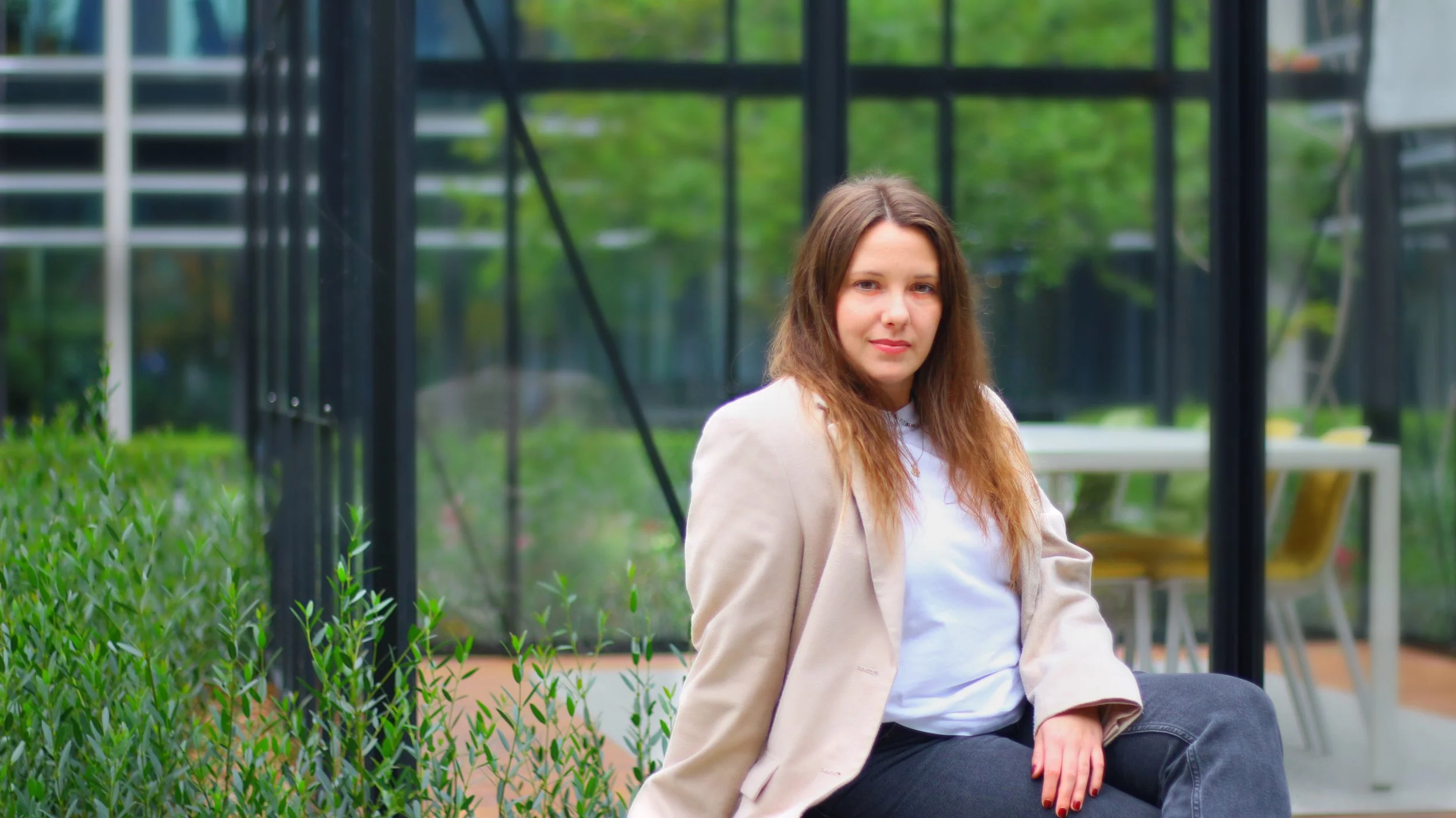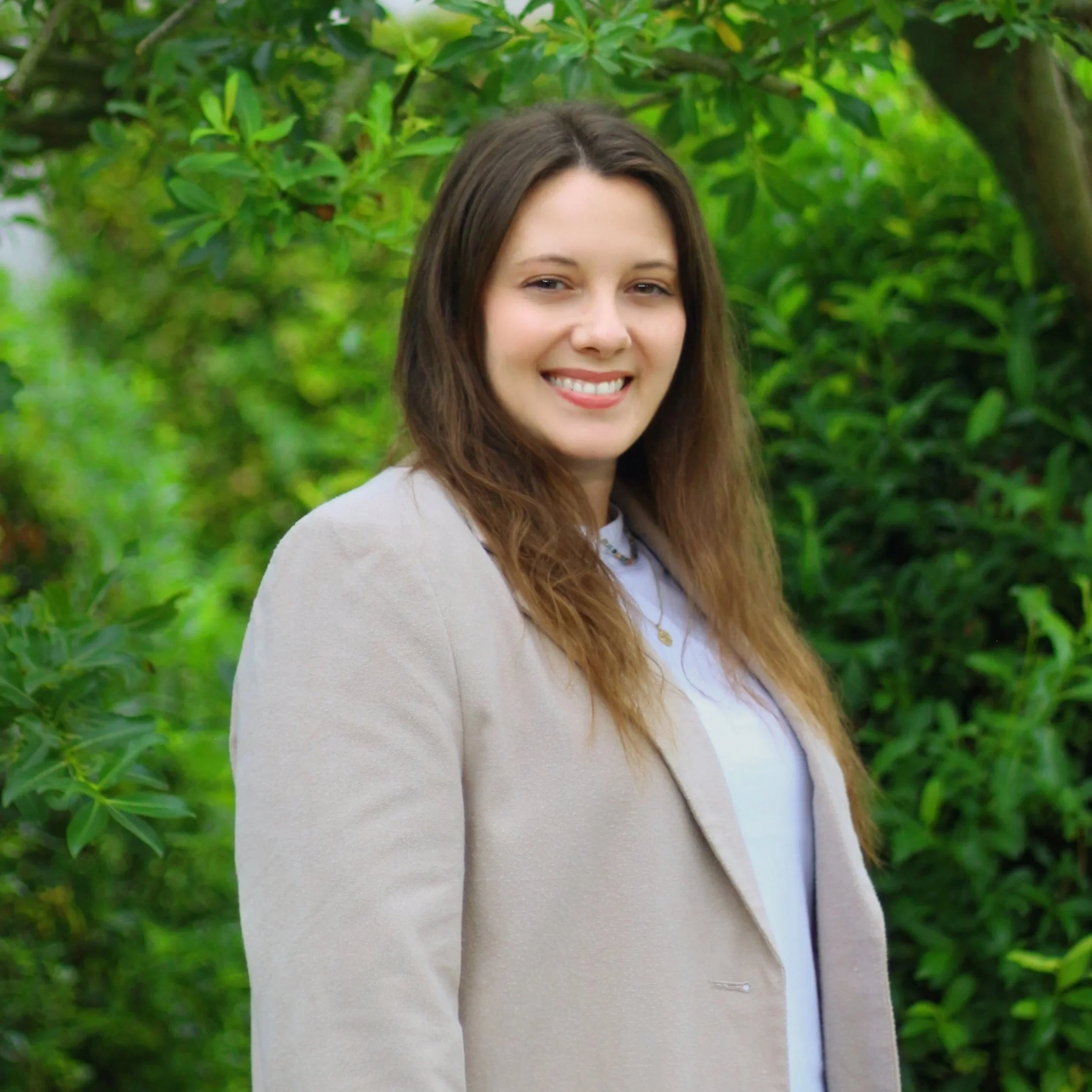bloom: Katharina Graf
Learning how to say yes!
company: OMP
Job title: Senior Advisory Consultant
From protecting your time and energy to asserting personal limits, we often hear about the benefits of learning how to say ‘no’. But what about the advantages of saying ‘yes’? Meet Katharina Graf, Senior Supply Chain Consultant at OMP, and discover how saying yes to new experiences and challenges has shaped her life.
Finding her path
How has growing up in a small village in Bavaria, Germany influenced your decisions?
I grew up as an only child with a very supportive family who encouraged me to be curious and see the world. My aunt made me promise to be open to trying new things at least once. I couldn’t say I didn’t like things without trying them first. And that philosophy has stuck with me.
Like her generation, my aunt was shaped by Germany rebuilding after the war (she was born in 1945). She learned that she had to seize every opportunity that came her way. And she taught me to do the same, like when she found ways to travel even without a driver’s license: her solution was to organize bus tours with friends to explore the world. I’m proud of the creative ways she found to achieve what she wanted even without the resources to do it directly. And the curiosity and creativity that I learnt from my mother and aunt underlies my daily life. For example, showing me that even though I didn’t study engineering, it doesn’t mean I can’t work in tech.
"My aunt made me promise to be open to trying new things at least once. I couldn’t say I didn’t like things without trying them first. And that philosophy has stuck with me.”
So, what did you study?
I originally did my Bachelor’s in Business and Chinese at both Würzburg University in Germany and Peking University in China, followed by a Master’s in International Relations in Denmark. While I was interested in the business and political side of things, I kept my field of study really broad as I wasn’t certain what I wanted to do as a career. Plus, studying Chinese was a safe choice as I knew I was good at languages.
As a child, many in her family thought she’d become a teacher. She loved looking after her nieces and nephews, and naturally stepped into caregiving roles. But she wanted something different. “I like children”, she says, “but I loved numbers more.”
How did you move from studying international relations to doing supply chain planning?
With my educational background, a traineeship at the European Commission in Brussels was an obvious next step. I started in the food safety department, helping to make trade agreements between the EU and the US on pasteurized milk. This meant comparing the technical details on how milk was produced in both regions to discover the differences and if it could be traded. I quickly found that I enjoyed the technical aspects, but the political side of things felt superficial.
After my traineeship, I returned to Denmark to work in a large dairy company as an operational assistant for their supply chain department. I thought the role would put me in contact with the people who look at the technical details of how food safety works, which really interested me. Happily, Michiel, my manager, was looking for more than just an assistant and he mentored me, letting me accompany him when he visited production sites and getting me involved with the data side of the work. He also encouraged me to do the APICS CPIM (APICS certified in planning and inventory management) certification, which gave me a solid theoretical background in the sector. I discovered that supply chain planning is all about finances, costs, volumes, and efficiency. And that was all covered in my business education.
After a couple of years, my mentor asked what my future plans were. It was good timing as a new shop floor digitalization project was just starting up and I thought that would be a good next step. It meant that I needed to spend time in the factories, talking to people on the shop floor to see how they work and what they actually need. During this project, I got to see the impact of the changes we introduced to the 12,000 workers, which was powerful.
Trying new things
It sounds like you were enjoying your time at the dairy company in Denmark, so why did you move to Belgium?
In Denmark I was lucky to have a great mentor. But, even so, after the digitalization project I wanted a new challenge that was, preferably, a bit closer to my family in Germany. I received several job offers, but ultimately chose OMP as I felt most employers were only looking for the right person for their open positions while OMP focuses more on people. So, when OMP decided they liked my profile, they found the right placement for my skills and talent. Even though OMP offered me the option of being based in Cologne, I decided to go to their Antwerp headquarters. And, two years later, I don’t regret that choice. I have a great coach here, plus my team lead is really supportive.
You’re now a Senior Supply Chain Consultant at OMP. What does your job entail?
I’m continuously talking to and advising customers for the 2 or 3 projects I’m working on, which means investigating their requirements and translating them into technical requirements. While I think it’d be easy to give customers every option and feature that we’ve ever made, I don’t think that would help them. They need an application that works with their tasks and processes, and that’s what I help them achieve. In some ways, it’s like the digitalization project – watching how each customer works and listening to what they say in order to develop smoother working processes that support them.
“Most employers only look for the right person for the positions they have open. Then I came across OMP. They focus more on people, so when they decided that they liked my profile, they found the right placement for my skills and talent.”
Looking ahead, what new things do you see yourself trying in the future?
I want to expand my technical knowledge, so I feel more confident and comfortable in my role. I also want to build on my CPIM certification and study data driven supply chain management as data is essential to supply chains.
Coaching is another aspect to my job that I find valuable. At OMP, everyone is assigned a coach to guide them through their first few months. While the people I coach don’t report directly to me, I help with their performance reviews, goals for the next year, and career development. It’s like being a mentor and I enjoy supporting others in the same way that I’ve been supported.
Expanding her horizons
When looking back at your journey, what’s important for us to know in order to better understand you?
I used to be shy. When I was younger, my dad used to make fun of me, saying that the quickest way to find me was to look at the back of a group. I never wanted to go first or be seen.
Having said that, I used to sing at weddings when I was a teenager – and you’re definitely seen when you do that! My Dad used to be a wedding singer, and he asked me to join him when I was about 13. After practicing every day for months, I was still really nervous. My dad reassured me saying that as I was still a kid, people would applaud me even if things didn’t go as planned and I should just try it. It went better than I expected and I continued singing in public until I went to university. Public singing is something I’d like to take up again but haven’t had time. One major advantage of that is that I don’t get stage fright anymore.
Moving to a new country can be daunting. How easy or difficult has it been to settle in Belgium?
I’ve moved around a lot – spending a year in Australia after finishing high school and studying in China and Denmark, before moving to Belgium. I thought it’d be harder to find new friends and a new network now that I’ve left university, but I quickly built up very strong connections here in Antwerp. There’s a lot of international people here, either they’ve come here to work, or they’ve followed their partner. It definitely helps that people here are open, positive, and supportive.
Getting positive reactions from other people have given me confidence in my ability to form connections, so, it’s now one of my strengths. Even if I’m not as shy as I used to be, I know I’ll never be the loudest person in the room.




